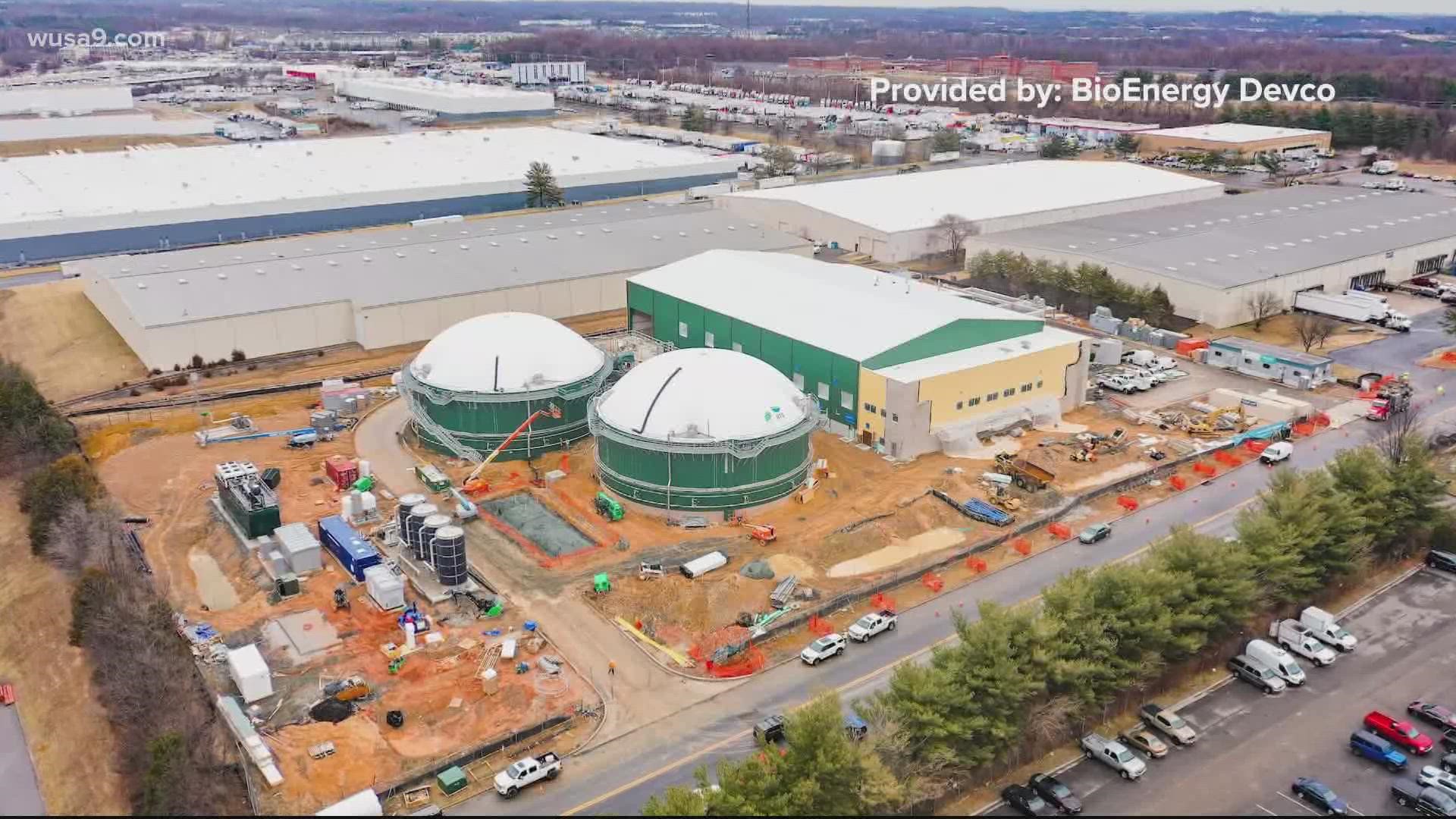WASHINGTON — The United States discards more food than any other country in the world, wasting an estimated 1.4 billion tons of food each year. To break it down, the average family of four wastes 612 pounds of food in one year.
All that wasted food is taking up more space in our nation’s landfills than anything else and producing methane emissions linked to climate change.
One solution to minimize harm wrought to the climate by food waste is by investing in more food composition.
The DC Department of Publics Works (DC DPW) provides drop-off locations in all eight wards on the weekend one of which is located at the Eastern Market.
Composting at Eastern Market in Ward 6 is part of Cathy Ross’ Saturday routine. The market collects around 4,500 pounds of food in a single day at their Saturday drop off.
"I think in general, it's important to kind of reduce what we have in the landfills,” Ross said in an interview with WUSA9. “And if we can convert that compostable waste into soil over the long term, there's something really satisfying about that.
Ross, a District resident, lives about a mile away from the Eastern Market and joining in the composting effort makes her feel part of a community.
“I'm walking with my composting bag and you know, I'm the only one but what I get about half mile away, I see other people were there composting buckets, and by the time I get to the actual composting site, there's this kind of a steady flow of people coming from all directions to compost,” Ross said.
The Environmental Protection Agency (EPA) is taking the initiative to combat food waste. It granted $2 million grants to 11 organizations, one of which is DC DPW.
According to William Easley, the recycling program officer with DC DPW, officials are working to limit methane gas.
"One of the biggest things that is produced in the landfill is biosolids, which really is like methane gas, it's coming off,” Easley said. “And we want to be able to prevent that."
Methane is one of the most harmful greenhouse gases and the primary contributor to the formation of ground-level ozone. A recent assessment from the United Nations Environment Programme and the Climate and Clean Air Coalition found that exposure to ground-level ozone causes 1 million premature deaths every year. And over a 20-year period, methane proved to be 80 times more potent at warming our climate than carbon dioxide.
Through the grant from the EPA, the DC DPW will be able to expand its commitment to keeping food waste out of landfills. The department plans to create a training program for commercial food waste generators, like restaurants, grocery stores and farmers’ markets. This program will allow businesses that end up with food waste to properly recycle and put it into anaerobic digestion locally.
Anaerobic digestion is a process where naturally occurring bacteria, which can only live in places that don't have oxygen, break down organic, biodegradable material, like food, over time.
One such organization doing this is the Bioenergy Devco facility in Jessup, Md.
CEO of Bioenergy Devco, Shawn Kreloff said in an interview with WUSA9 that the organization is working to trap methane “that normally would be released in the atmosphere if you put it in an incinerator or landfill.”
One of the results of anaerobic digestion is the production of natural gases that can be used to power homes.
According to Nena Shaw from the EPA, the importance of anaerobic digestion cannot be emphasized enough. "We save the emissions that would have been created had food waste gone into a landfill, which that creates methane, so we save that from happening and then we also create this other valuable resource that can be sold and used in a beneficial way."
According to the EPA, its grants will reduce food loss and waste by 50% by 2030.

